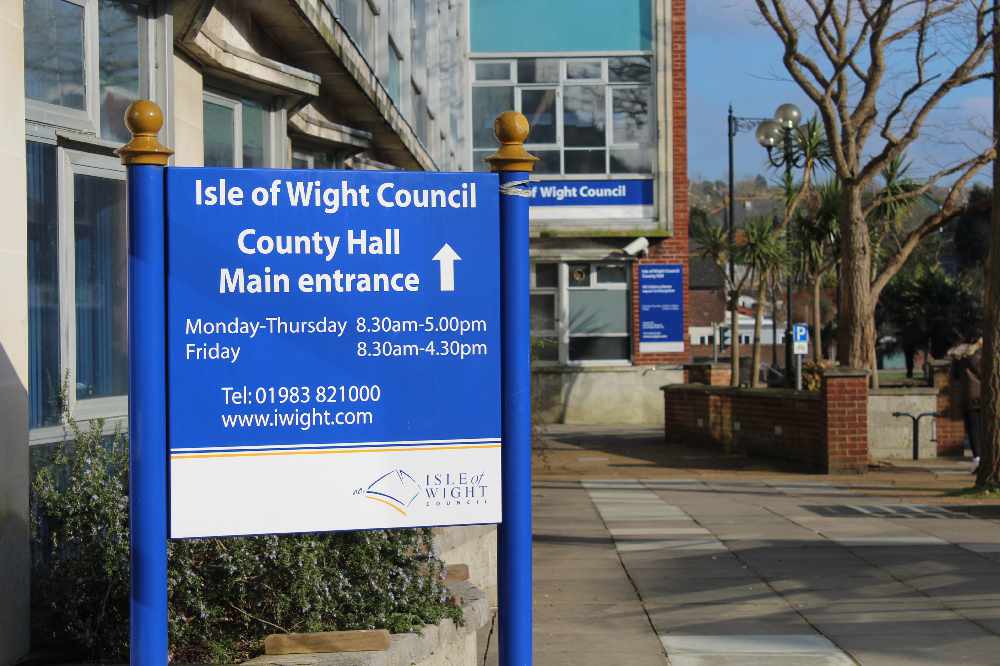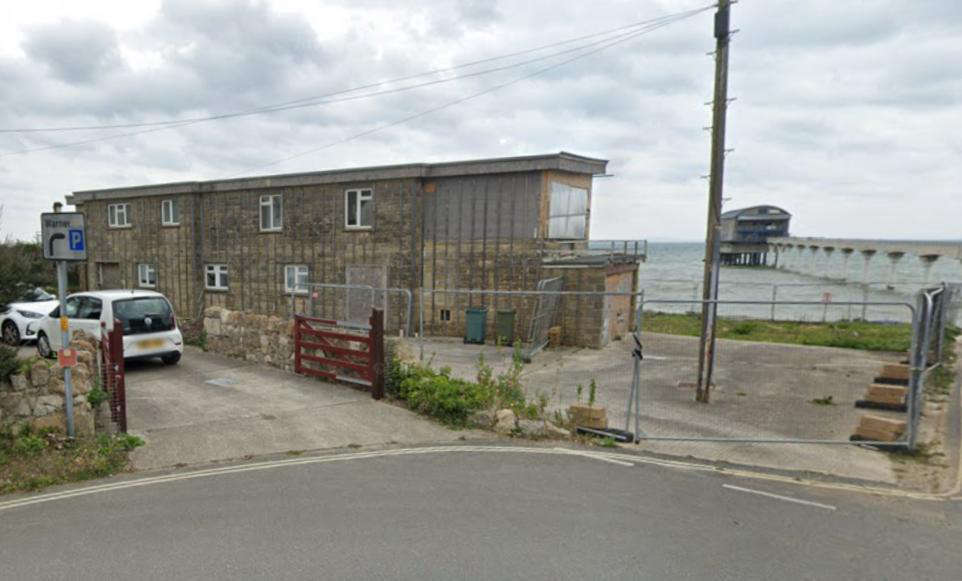
After 29 years with Sky and 43 in live broadcasting, Nick Powell will be switching off his mic later this week, retiring on his 66th birthday. A face familiar to both Sky Sports and Sky News viewers over the years, Nick reflects on a career both making and breaking stories...
My phone rang at 5.40am on holiday in Sicily.
It was the duty editor at Sky News.
Muhammad Ali had died. As Sports Editor, I was needed live on air at 6am.
Still in my pyjamas, I drove down the coast in search of better reception trawling my sleepy brain for my best thoughts about boxing's greatest legend.
I recalled, too, the one time he and I had been in the same room, a decade earlier, when his mere presence had exuded electricity.
I was on air at a minute past six: "Let's get the thoughts of our Sports Editor Nick Powell...".
The good, the bad and the surreal...
And there you have my job in a nutshell: holiday irrelevant; knowledge, authority and quick reactions essential.
I have built all that up over 43 years of live broadcasting, good and bad.
The good - being there for England men's first Ashes win in 20 years at The Oval in 2005, Super Saturday at the 2012 London Olympics and Andy Murray's 2013 Wimbledon triumph.
The bad - the Bradford fire, the Hillsborough disaster and the premature loss of sportspeople like Gary Speed.
And the surreal - interviewing Archbishop Desmond Tutu and covering a Bruce Springsteen concert on the same afternoon for Yorkshire Television, or explaining The Hundred to viewers of Sky Germany. In German.
I never actually wanted to be on television. As a kid, my dreams were of a career in radio, partly because - back then - it was so much speedier.
Yes, we had to edit our interviews at Pennine Radio in Bradford by slicing the recording tape with a razor blade (not too many injuries, but modern Health and Safety would have had a fit!).
But with a bit of boldness and imagination, you could make stuff happen, and quickly.
I was at Leeds United vs Norwich City in 1985, where the fog was so thick you couldn't make out the far end of the pitch from the radio commentary position in the press box, level with the 18-yard line.
Steve Greenall was commentating. I was only there because my game at Bradford had been postponed because of waterlogging. But I did have a Pennine Radio mobile phone - bigger than a brick and heavier too.
So I set myself up in a spare seat at the other end of the stand, and Steve and I handed commentary to each other as the ball switched from his foggy half to mine.
When I joined Yorkshire Television in 1986, everything seemed so much clunkier.
The four-man news crew based in Grimsby still shot their stories on old-fashioned film, which had to be biked 80 miles to a specialist lab in Leeds for developing, and then couriered on to the studios, where editing was laborious.
No matter how big the story in Grimsby, if it happened after lunchtime there would be no pictures on television until the following day.
Any live broadcast from location required a full outside broadcast unit of furniture removal proportions.
Spool on through my thousands of hours of presenting for Sky Sports News and Sky News and we can "go live" at the drop of a hat, from anywhere you like, often with nothing more complicated than a mobile phone.
Even in 2007, at the Rugby World Cup in Paris, I was able to present part of a programme live from a bus as it drove around the Eiffel Tower. As you do.
I had been doing a routine day on the Sky News sports desk that Wednesday when someone told me I was on a 7.35am flight from Heathrow the next day to present sports bulletins from Paris in the run-up to Saturday's final.
From support act to lead anchor
England lost to South Africa. I was in position in front of our camera after the match, expecting the rugby to be at or near the top of Sky News at Ten.
Connected by talkback to the studio in London, at 9:58pm I heard the producer walk into the gallery and tell the director there: "Nick Powell is going to present the whole of News at Ten, live from Paris".
"Does he know that?" queried the director, almost calmly.
"No, I'm about to tell him."
I jotted down six headlines. The producer, Ronan Hughes, insisted I read them back to him.
Wise move. I could only decipher four of my six bits of scribble. Thirty seconds later, we were on air. No autocue, no monitor to check pictures. Ronan kept talking me through what was coming next, and I ad-libbed my way through a smooth half-hour. Live and immediate from the heart of a big story.
It's that knowledge and experience thing again.
But as with everything in television, it only worked because of the strength of the team.
A few months earlier, I was broadcasting live on the day of the first FA Cup final (Chelsea vs Manchester United) at the new Wembley Stadium.
Our technical wizards had secured us a position on a hotel roof with a magnificent view of the new arena and its iconic arch, designed by Norman Foster.
I brought Lord Foster up to "our" roof. We edged past an electricity booster point and there was his stadium. The great architect, there with his wife, stopped in his tracks. "Wow!" he gasped. I knew we'd found a great viewpoint.
Earlier that day, another surreal moment.
The hotel gave us a top-floor bedroom as our base for the day, and I found myself sitting on a double bed with our producer, camera operator, Chelsea defensive legend Ron "Chopper" Harris, comedian David Baddiel and his brother Ivor (both Chelsea fans), and Neil Ashton of the Daily Mail.
"The glamour of television." I can't tell you how many times I have uttered that phrase through gritted teeth, while getting rainsoaked at the Ryder Cup, windswept at Wimbledon or frozen at football.
But of course, it's all been worth it.
For the camaraderie of colleagues, the thrill of "being there", the buzz of digging a live programme out of a hole by staying calm and being able to talk without autocue or notes.
And making people laugh, ideally intentionally but I've ended up a few times on "It'll be Alright on the Night" and come out the other side.
The privilege of presenting iconic shows like Soccer Special.
Broadcasting from amazing places - Anfield, Lord's, Royal Troon, the flight deck of HMS Ark Royal, Sydney Opera House, and inside Buckingham Palace.
And discovering in my last 10 years at Sky that speaking fluent German was after all useful professionally.
I was in Munich many times on Deadline Day as a guest on Sky Germany's output, as a German-speaking pundit with a British perspective.
Never say 'no' to Fergie
People often ask about difficult interviewees. Very few. Even those I was warned about in advance, from Sir Alex Ferguson to Princess Anne and playwright Alan Bennett, could be charming if you played it right.
Naturally, Fergie wasn't always. But he once gave me a touchline interview I didn't actually want. Believe it or not I wanted Clayton Blackmore (who had just scored the only goal at Sheffield United). We would get the great man himself later. But in the tumult he misheard me and put up a finger to say "in one minute", after which he duly presented himself in front of my camera. We did not send him away.
There is a different kind of tricky interviewee - the one who won't stop.
I had the legendary boxing promoter Don King live from New York as the final item in a programme. I don't think he would have stopped talking if his mouth had been sellotaped. He was certainly still going as I said goodbye to the viewers.
And now it's a final goodbye.
Favourite moment? So many, but as a born and bred Liverpool fan, it's hard to beat being on air for their first league title in 30 years.
As it turned out, between the final whistle going on Manchester City's defeat at Chelsea, which meant Liverpool could not be caught, and the start of a special programme fronted by David Jones to mark Liverpool's triumph, I had precisely 12 seconds.
But that's live television for you.
(c) Sky Sports 2025: Nick Powell: Sky Sports News presenter reflects on 29 years with Sky and 43 in live broadcasting on eve of retirement


 Tottenham: Is Ange Postecoglou right to highlight injuries as reason for team's problems this season?
Tottenham: Is Ange Postecoglou right to highlight injuries as reason for team's problems this season?
 Man Utd: Marcus Rashford, Jadon Sancho and the 'freedom' loanees are finding away from Old Trafford
Man Utd: Marcus Rashford, Jadon Sancho and the 'freedom' loanees are finding away from Old Trafford
 Kansas City Chiefs: What next for Patrick Mahomes and co after Super Bowl 59 heartbreak?
Kansas City Chiefs: What next for Patrick Mahomes and co after Super Bowl 59 heartbreak?
 Tiger Woods withdraws from playing return at Genesis Invitational following the passing of his mother
Tiger Woods withdraws from playing return at Genesis Invitational following the passing of his mother



 Isle Of Wight Council To Consider Key £13m Spending Packages Amid 'Unprecedented Uncertainty'
Isle Of Wight Council To Consider Key £13m Spending Packages Amid 'Unprecedented Uncertainty'
 Schools Come Out In Force To Support "Wear What Makes You Happy" Fundraiser For Arlo Lambie
Schools Come Out In Force To Support "Wear What Makes You Happy" Fundraiser For Arlo Lambie
 Isle Of Wight Council Launches 2025 National Apprenticeship Week With Flag Raising
Isle Of Wight Council Launches 2025 National Apprenticeship Week With Flag Raising
 Plans To Replace 'Half-Built Eyesore' With New Seafront Café Divides Opinion
Plans To Replace 'Half-Built Eyesore' With New Seafront Café Divides Opinion